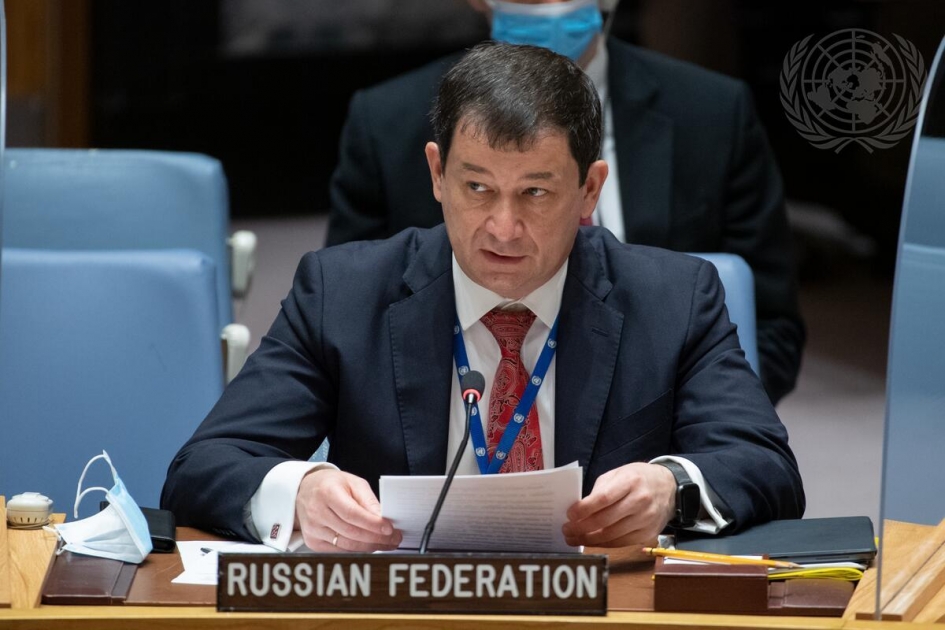Statement by Chargé d'Affaires of the Permanent Mission of Russia to the UN Dmitry Polyanskiy at UNSC briefing on the situation in Libya
Excellency,
We welcome you in your capacity as President of the Security Council at this meeting. We also welcome Prime Minister of Libya A.H.Dbeibeh, Minister of Foreign Affairs of Tunisia O.Jerandi, Minister of Foreign Affairs of Germany H.Maas, Secretary-General of the League of Arab States A.Aboul Gheit and other high representatives.
Mr.President,
We thank SESG Kubiš for a detailed informative briefing on the situation in Libya.
When it comes to assessing Libya’s prospects, we do this with cautious optimism. The signing of a ceasefire agreement by the Libyan sides in October 2020 was definitely a major achievement. The opposing sides started to gradually overcome mutual distrust that had been caused by the many-year-long conflict, triggered by foreign interference back in 2011.
Libyans also have been able to make remarkable progress at the political track. They formed new power authorities for the transitional period – the Presidential Council and the Government of National Unity. Efforts to ensure functioning of consolidated state mechanisms, financial and economic institutions are continuing. The final communique of the Berlin II Conference on Libya that took place in June highlighted this progress.
We realize that implementation of all provisions of the roadmap does not come easily. We can tell it by your report, Mr.Kubis. The main task that exists for Libya’s transitional authorities at the moment is to convene general elections as scheduled, on 24 December 2021. In order to meet this task, they need to ensure adoption of a corresponding constitutional basis, which will be possible once the Libyan Political Dialogue Forum and the Libyan House of Representatives make compromise.
Whether this is going to be successful will directly depend on the degree of inclusiveness and transparency of Libya’s political process at large, including elections. It means that all leading political forces of the country, representatives of all its regions, as well as representatives of former authorities will need to engage meaningfully.
Mr.President,
We support the activity of 5+5 Libyan Joint Military Commission, which plays a pivotal role in consolidating Libya’s armed forces and stabilizing the security situation. Hopefully, the Commission will soon come to an agreement with regard to opening a strategic transport corridor between Libya’s east and west.
Another crucial issue today is foreign military presence. We stand for step-by-step phased withdrawal of all foreign forces and contingents from Libya. At the same time, we need to make sure that the current balance of forces on the ground not be disrupted, because it is thanks to this balance that the situation in Libya remains calm and no threats of armed escalation emerge. Besides, there is a need to take on board the interests of Libya’s neighbors in the area of security and utilize their expertise on that matter.
On our part, we will further work to maintain close contacts with the leading political forces from different regions of Libya, encourage them to go for compromises on key issues related to the political process. We stand ready for constructive cooperation with international partners.
Thank you.
